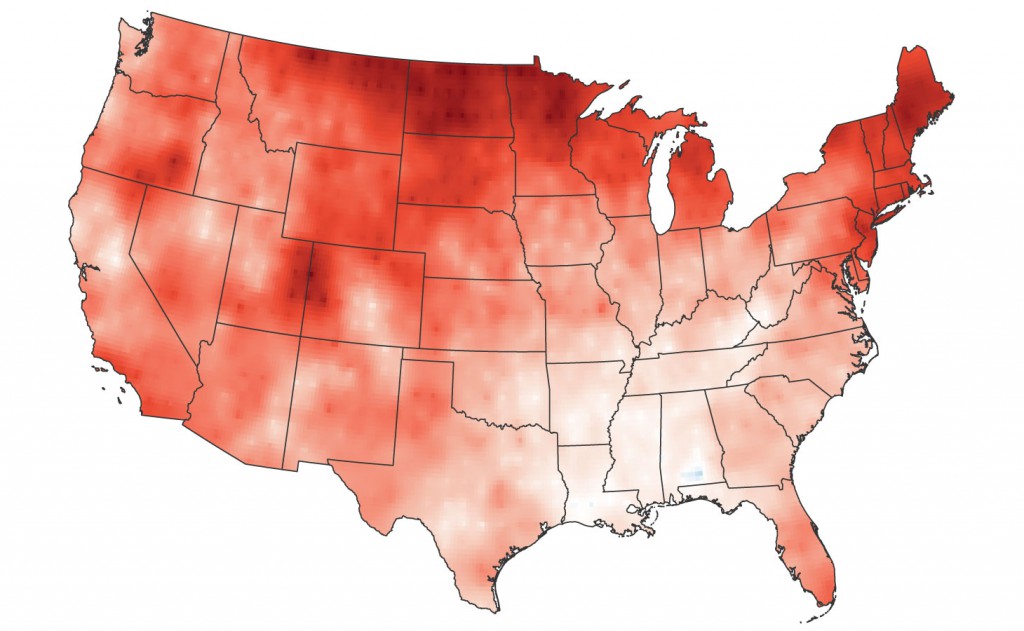Health
-

Every year, more than 500 Americans get hit by lightning. Around 90 percent of those survive, but often with debilitating and sometimes mysterious symptoms that can cause serious continuing health issues. Here is a story about what happened to several people who survived lightning strikes and how that experience…
-

National Public Radio published a story earlier this week collecting information on how the trend towards warmer winters is causing impacts in different parts of the US. Here in the Southeast, we are seeing impacts on fruit like blueberries and peaches and on disease vectors…
-

Earlier this month, posted an interesting story about how housing practices from decades ago are still determining which neighborhoods are experiencing the most urban heating. Back in the 1930’s, many neighborhoods were ‘red-lined”, shutting some minorities out of the most desirable neighborhoods and segregating them. A recent study shows that even decades later, the neighborhoods…
-

A new study published in Nature Medicine indicates that rising temperatures are likely to result in an increase in deaths and injuries in the US. Earlier studies have shown that heat waves are associated with increases in violent crimes, falls, and accidents. Other studies have shown increases in drownings and suicides in hot conditions. Hotter…
-

Over the years a number of people have asked me if there is a relationship between the weather and body pain. There have been a number of research studies to address this with variable results. A new study published recently points to an increase in chronic pain from arthritis and humid, windy days. Low pressure…
-

WebMD posted a story about the likelihood of a “brutal” ragweed season in the next few weeks across the US. Ragweed grows best when temperatures are hot and moisture is plentiful. There has been enough of both earlier in this growing season to cause worries that a large ragweed population may bring lots of pollen…
-

This week’s Roadmap question for the Georgia Climate Project focuses on the need for more research on aspects of climate-related health vulnerabilities. This could include both vector-borne diseases like West Nile Virus or Zika and heat-related illnesses. Public health agencies need to know what types of diseases to plan for in the future to help…